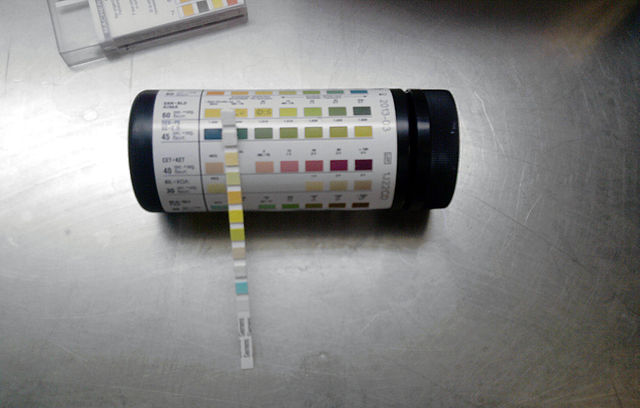Pancreatic cancer news: Simple urine test shows potential for early detection

Detecting early stages of pancreatic cancer could soon be possible with just a simple urine test, a new study finds.
Scientists from Barts Cancer Institute in Queen Mary University of London have discovered three proteins that provide over 90 percent accurate early warnings of pancreatic cancer.
This breakthrough may pave way to an affordable, non-invasive test to assess those who are at risk of getting the disease.
According to WebMD, symptoms of the fatal pancreatic cancer usually do not show up until the disease has spread and is on its advanced stage.
By that time, there's not much that can be done to improve the life of the patient.
Scientists have been trying to find ways to screen patients so that they can detect pancreatic cancer early on and appropriate treatment can be given.
If the basic urine test proves to be useful, it would definitely make a huge difference in the detection of pancreatic cancer, said Dr. Tatjana Crnogorac-Jurcevic, the study's lead researcher, according to the WebMD report.
For the study, scientists tested almost 500 samples of urine, of which less than 200 belonged to patients who have pancreatic cancer, 92 from chronic pancreatitis patients, and 87 from healthy individuals.
The rest belonged to patients with liver and gall bladder problems.
From the 1,500 proteins present in urine, three of them namely LYVE1, REG1A, and TFF1, appeared to be in noticeably high levels in urine samples from patients with pancreatic cancer, BBC News reported.
This discovery provided the "protein signature" that can detect the most common type of pancreatic cancer while it's still in its early stages.
"This is an exciting finding and we hope to see this research taken forward into a much-needed early diagnostic test," said Maggie Blanks of the Pancreatic Cancer Research Fund.
However, Cancer Research UK's Fiona Osgun said in a BBC News report that there's still a long way to go to determine if the study can definitely give birth to a test that provides early detection of the cancer or who will benefit from such test.











